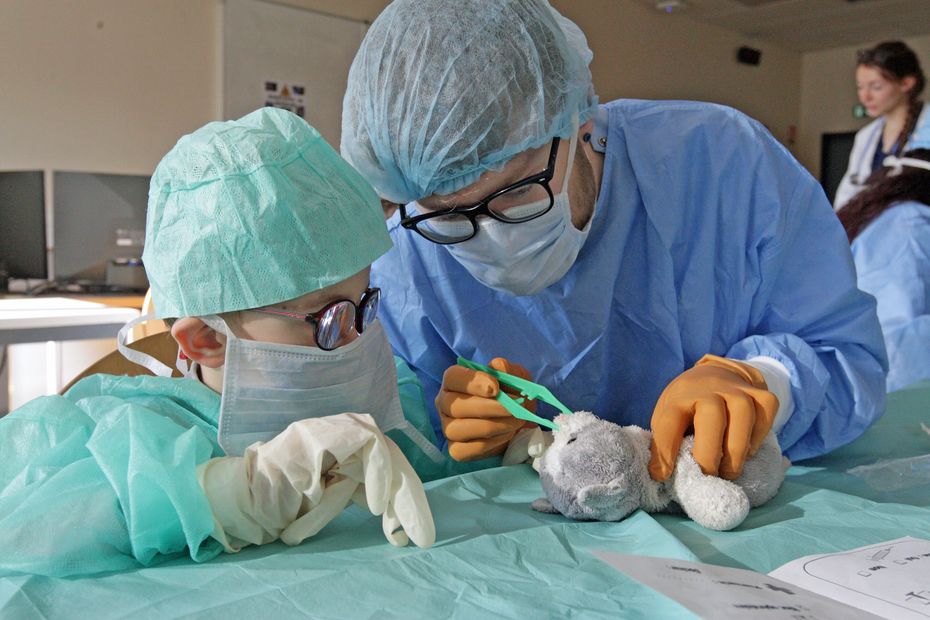From June 23 to 25, students from the Besançon Faculty of Medicine are organizing a new edition of the Teddy Bear Hospital: students treat the stuffed animals of nursery school students to play down medical acts and educate children.
–
After a blank year due to the pandemic, the Teddy Bear Hospital in Besançon will once again open its doors from June 23 to 25. An event organized by the students of the medical faculty, on their premises, with schools in the city. “We disguise the halls of the university as a hospital to welcome kindergarten students”, explains Emma Jacquot, second year medical student and co-organizer. Concretely, these children of middle and large sections of four schools, plus a class made up of children with motor disabilities, will come to consult teddy-bearers to take care of their favorite stuffed animal. About 200 children will benefit from this device.
Teddy-bearers for cuddly toys
“The students who play the teddy bear pick up the children”, describes Suzy Penaget, also a student and co-organizer, “We ask him what his blanket is, if he’s sick or in pain, we make him listen to his teddy bear’s heart, tapping under the table so that he hears heartbeats”. “They discover how the health book works, with their teddy bear book that we fill out with them”. After the diagnosis, the cuddly toys and their young owner are taken to specialists for treatment. Students in physiotherapy, speech therapy and future midwives participate alongside students who take on the role of surgeons. After the consultation, a pharmacy student will give them (fake) teddy bear medicine. Each specialty will treat the plush, explaining the course of acts and their role. “It is important to let them know which nursing staff has which role” explains Suzy Penaget.
Because the goal of this operation is to make the medical world known to children, and above all, to play down it. “There are a lot of people who are afraid of going to the hospital, or of things they will have in their lifetime, like vaccines” notes Suzy Penaget. “They may not trust the medical profession, although we are there to help them”, complete Emma Jacquot, “It’s important to get this message across when they’re still young, so that nothing prevents them from trusting us”. And the best way to leave a positive memory is to have a good day. “We offer them small gifts, we make them participate, listen to their hearts, we talk to them about the human body, the organs” lists Suzy Penaget, “It’s a day where they really have a good time”. “Schools love it, kids love it, and students love it too” sums up Emma Jacquot.
–


